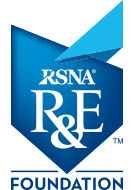Your Donations in Action: Christian van der Pol, MD
Evaluating the Diagnostic Test Accuracy of LI-RADS


Clinicians worldwide use the Liver Imaging Reporting and Data System (LI-RADS) as a standardized tool for imaging-based diagnosis and reporting of liver disease diagnosis, including hepatocellular carcinoma (HCC).
To better understand the impact of various LI-RADS imaging features on HCC diagnosis, it is critical for researchers to provide evidence and comprehensive performance analyses of the system’s diagnostic algorithms.
For his 2023 RSNA Research Scholar Grant project, “Liver Imaging Reporting and Data System (LI-RADS) Diagnostic Test Accuracy Individual Patient Data (IPD) Meta-Analysis,” Christian van der Pol, MD, associate professor of radiology at McMaster University in Hamilton, Ontario, Canada, and colleagues performed a detailed review to determine the relative importance of the major, ancillary, LR-M and tumor-in-vein (TIV) imaging features in CT/MRI and contrast enhanced US (CEUS) LI-RADS for predicting HCC.
The researchers used a ‘living’ individual participant data (IPD) meta-analysis approach. They collected data from corresponding authors on thousands of liver observations captured through CT, MRI and CEUS.
With these data, the team conducted multiple analyses interrogating the influence of each LI-RADS imaging feature on the system’s diagnostic performance, the impact of different risk factors on system performance, and the impact of different reference standards among others.
Their research, which is ongoing, provides insights that can lead to more accurate liver imaging diagnostics and foster innovation in radiology methodologies worldwide.
“Our work helps to address current knowledge gaps pertaining to LI-RADS and also to identify areas needing more data,” Dr. van der Pol said. “Our findings are informative to users of LI-RADS as well as the LI-RADS Steering Committee, who can then incorporate our findings into the broader context of liver imaging in high-risk patients for future LI-RADS iterations.”
Funding from the R&E Foundation helped Dr. van der Pol undertake this research. “The grant provided me with much needed time to plan and execute this work,” Dr. van der Pol said. “It can be challenging to find this level of support from other organizations as an early-stage investigator.”
For More Information
Learn more about R&E Foundation funding opportunities.
Read our previous Your Donations in Action story.